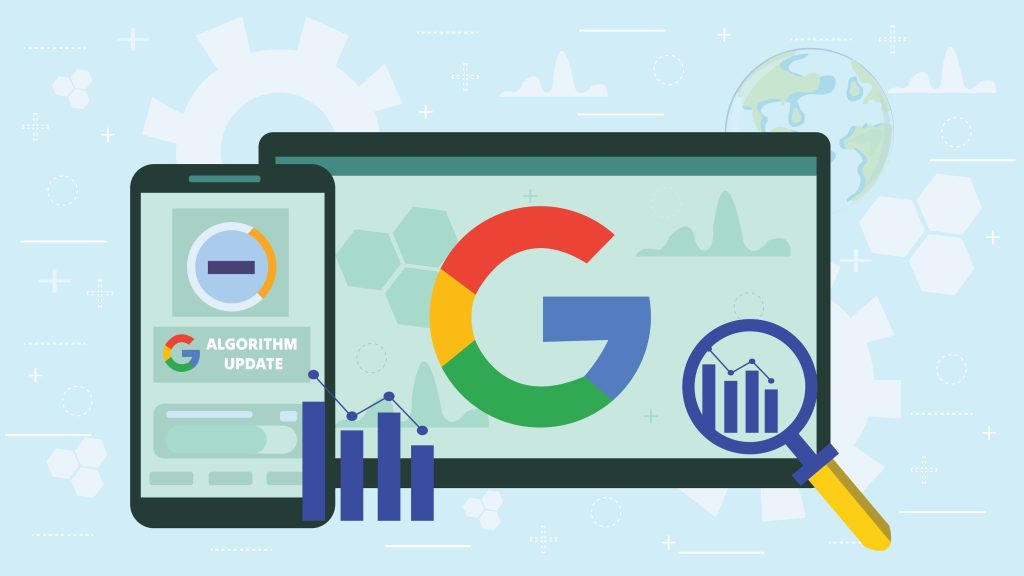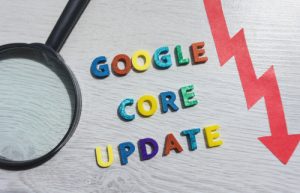Are Your Pages Ranking Well on Google?
Google Search has become an indispensable tool for users worldwide, connecting billions of queries to the most relevant and useful content on the web. But how exactly does Google decide which pages to show at the top of its search results? Google evaluates web pages through crawling, indexing, and over 200 ranking signals.
If you’re having trouble with your website rankings, contact our digital marketing company! Now Media Group offers a full suite of marketing services, ensuring you can meet your business goals. Contact our marketing team at(858) 333-8950 today for afree strategy call.
Common Myths About Google Search Ranking
With so much information available about Google’s search ranking system, it’s easy to fall for some common myths. Here are a few misconceptions to be aware of:
- Higher Keyword Density Equals Higher Ranking: While keywords are essential, overusing them (keyword stuffing) can hurt your ranking. Focus on providing valuable content that naturally incorporates relevant keywords.
- More Pages Lead to Better Ranking: Quality trumps quantity. A few well-optimized pages are more effective than numerous low-quality ones.
- Buying Links Improves Ranking: Google penalizes sites that engage in link schemes. Focus on earning high-quality backlinks through legitimate means, like creating valuable content and fostering relationships with other websites.
The Fundamentals of Google Search Ranking
Web Crawlers and Indexing
The ranking journey on Google begins with web crawlers, also known as spiders or bots, which are automated programs designed to navigate the internet and discover web pages. These crawlers scan the content of each web page and follow links to other pages, building a comprehensive index that Google uses to retrieve information during searches.
To make your website easily discoverable by crawlers, focus on optimizing its technical aspects. This involves creating a clean site structure, using appropriate HTML tags, and eliminating technical errors that might obstruct crawling and indexing. Better crawlability enhances your chances of achieving higher Google rankings.
Ranking Algorithms
Once your web pages are indexed, Google’s ranking algorithms come into play. These advanced algorithms evaluate each page based on over 200 signals to determine its relevance and usefulness to the user’s query. Factors such as content quality, authority, and user satisfaction are critical in this evaluation process.
Google’s ranking algorithms are designed to sort through billions of web pages to find the most relevant and valuable content quickly, which can significantly impact Google rank search results. This involves not only assessing on-page elements but also considering off-page factors like backlinks and social signals to rank websites and Google rank websites.
Core Ranking Factors
On-Page SEO Elements
On-page SEO involves optimizing various elements within your web pages to improve their ranking on Google. Key components include the title tag, meta description, headers, and internal links. For instance, the title tag should ideally contain the target keyword and be between 50 to 60 characters for optimal visibility. Placing the keyword at the beginning of the title tag can further enhance its relevance.
Meta descriptions, while not a direct ranking factor, significantly influence click-through rates and should be concise and compelling. Additionally, using secondary and LSI keywords naturally within your content can improve rankings for keyword variations.
Off-Page SEO Elements
Off-page SEO focuses on external signals that influence a site’s authority and relevance. Backlinks, which are links from other websites to your own, play a critical role in this aspect. High-quality backlinks from reputable and relevant sites can significantly boost your site’s authority and visibility in search results.
To acquire valuable backlinks, create content that others find informative or valuable enough to link to. Promote your content actively to gain visibility and encourage natural link-building. Avoid black-hat tactics like comment spam, as they can harm your off-page SEO and lead to poor rankings.
Content Quality and Relevance
Creating high-quality, relevant content is fundamental to achieving top rankings in search engine results. Understanding and aligning with user search intent ensures your content meets the needs of your audience. Principles like E-E-A-T (Experience, Expertise, Authoritativeness, Trustworthiness) are crucial in determining content quality and are highly valued by Google.
Longer, comprehensive content generally performs better in search rankings because it covers topics more extensively. By focusing on creating valuable and shareable content, you can enhance your site’s visibility and authority.
How Google Updates Its Ranking Algorithms
Google’s main mission is to organize the world’s information and make it universally accessible and useful. To achieve this, Google frequently updates its ranking algorithms to ensure that the search results remain relevant and valuable to users. The relationship between Google and website owners often resembles a cat-and-mouse game, as website owners devise tactics to rank higher, and Google adjusts its algorithms to prevent manipulation.
- Daily Minor Updates: Google updates its ranking algorithms regularly, with minor changes occurring daily and larger updates quarterly. These frequent updates aim to provide value by ensuring relevant and high-quality search results. Google usually performs between 5 and 9 minor updates to its algorithm daily.
- Major Algorithm Updates: Major algorithm updates by Google significantly alter search rankings and are typically rolled out every few months. These larger updates tend to have a more drastic and lasting impact on search results compared to minor updates. Factors such as load time and layout shift were incorporated into Google’s ranking algorithms during updates in 2021 and 2022, highlighting the importance of user experience.
Technical SEO and Its Impact on Google Rank Search Results
Site Speed and Performance
Site speed and page speed are critical factors in user experience and SEO. A fast-loading website can significantly improve user satisfaction and increase the chances of ranking well on Google. Studies show that users are likely to abandon a page if it takes longer than 3 seconds to load, which can negatively impact your rankings.
Optimizing for Core Web Vitals and site accessibility is essential for providing a better page experience. Ensuring that your site loads quickly on both mobile and desktop devices can enhance your Google rankings and overall user engagement.
Mobile Optimization
With the shift to mobile-first indexing, Google prioritizes mobile versions of websites when indexing and ranking. This makes mobile optimization a key factor in determining search visibility. A mobile-friendly website is essential as more users access the internet via mobile devices.
To improve mobile optimization, ensure your website has a responsive design and fast loading times. Enhancing user experience on mobile devices can lead to better rankings and increased traffic from organic search.
Crawlability and Indexation
Making your website easily crawlable and indexable is crucial for high rankings. An XML sitemap assists Google in locating and indexing important pages. Regular site audits can identify technical issues and areas for content optimization.
By improving crawlability and indexation, you increase the likelihood of your pages being discovered and ranked higher by Google. This technical aspect of SEO is essential for maintaining a visible and accessible website.
Monitoring and Analyzing Your Search Performance
To maintain and improve your search ranking, you need to monitor and analyze your website’s performance regularly. Tools like Google Analytics and Google Search Console provide valuable insights into how your site is performing in search results. Track metrics such as organic traffic, bounce rate, and average session duration to identify areas for improvement.
- Regular Audits: Conduct regular SEO audits to ensure your website complies with Google’s best practices and to identify any technical issues that could affect your ranking.
- Competitor Analysis: Keep an eye on your competitors to see what they’re doing well and identify opportunities to improve your own search performance.
Let Us Navigate the Complexities of Google Search Ranking for You
Google’s search ranking system is a complex and ever-evolving process that requires a deep understanding of various factors, from content relevance to user experience. By staying informed about how Google ranks web pages and implementing best practices in SEO, you can improve your website’s visibility and drive more organic traffic. Keep in mind that SEO is a long-term strategy, and consistent effort is key to achieving and maintaining high rankings in Google Search.
Are you ready to boost your results? Contact Now Media Group today by calling (858) 333-8950!




